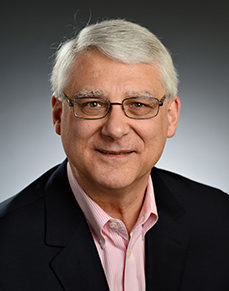HOME | ABOUT US | MEDIA KIT | CONTACT US | INQUIRE
HOME | ABOUT US | MEDIA KIT | CONTACT US | INQUIRE
December 2021
 Q: What elements came together that told you this was the time to pull the trigger on transition?
Q: What elements came together that told you this was the time to pull the trigger on transition?
A: A number of things. Sold the bank, technology was bypassing me, COVID-19 reflection, a tougher and more competitive banking environment, and lack of direct ownership.
Q: How has the business banking market in Kansas City changed since you opened the doors more than 30 years ago?
A: It’s less personal, more mechanical, formulaic. It’s harder for a smaller business to get someone’s attention.
Q: What is it that makes banking in this market so hyper competitive, relative to other markets—and especially in Johnson County?
A: Part of it, and I don’t know that it’s a simple answer, is that Kansas is a unit banking state. We were always the last, or nearly the last, to get involved with a lot of consolidations and mergers. But now the bloom is off the rose. If you own in Oberlin, there aren’t 10 people at the door wanting to buy your bank. So you think that if you move to Johnson County, it would be worth more money. The reality is, we all know it, as Johnson County goes, so goes the rest of Kansas. It’s still the economic engine of Kansas. Don’t think of the charters, think trying to tap into that marketplace.
Q: How does that level of competition alter the banking dynamics?
A: With this number of banks, and lack of significant growth, they are all focused on similar high-growth segments. I don’t think there are a lot of crazy people here, and if you look at residential construction, when you go after builders, most of those have multiple banking relationships. Most bounce from one to another, and I can’t tell you how many times I’ve heard “Well, so-and-so is offering prime with no points.’”
Q: What do you consider the bank’s biggest contributions to business growth in the county?
A: Connecting with people and helping build smaller businesses. I’m a guy who loves the small and mid-size business market. Going after $10 million loans is not necessarily my cup of tea. I’d rather work with someone who has the opportunity to grow. I have some companies who don’t bank with me any more—I’m still friends with all, but after you help get them to a certain size, at a point in time, two axes cross and that relationship has to be compared against what they need. The larger they get, the more objective they need to be. They can’t stay just because “Bob got me here.” That’s just a matter of fact, but that’s sad to me. This is family, everyone is family, the people I know, I know their family, I know their business, I know their history. That’s the essence of this business.
Q: The bank hit a rough patch in the Great Recession and turned to TARP to get back on track. How hard was that, to basically have to build your enterprise all over again?
A: If you go back to the Great Recession, I look back and can tell you all the things I should have done that I didn’t. There was too much concentration in certain areas, and with certain borrowers. I made some mistakes, but having said that, we connected with regulators, had the trust of the regulators. My perception was they thought he’s OK, he just needs to improve the asset quality, just give him a chance, and they did. Over the next two or three years, we got it all back. The day we got to zero non-accruals, I did cartwheels. But there were a lot of people around me who were stellar performers. They all knew what the goal was and they got there.
Q: What will that first day of retirement look like?
A: I’ll be doing the things I have put off: Paying attention to family assets, a little more travel, finding a way to really make a difference in a larger way. If I can’t make difference, I don’t want to mess around. What I’m really interested in, my dad was a home builder, and he used to say that owning your own home was a stabilizing influence. Owning a home means you’re part of the community, you care about it. If I can help in that way, I’ll try to find a place to fit in.